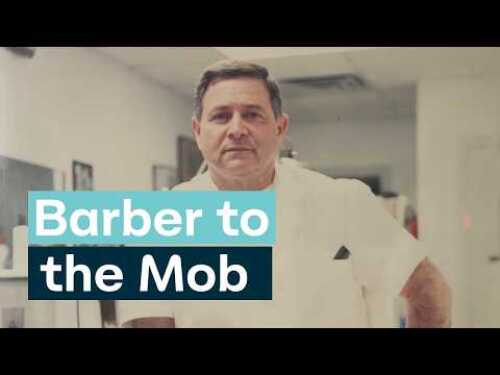When you picture a martial arts gym, you might imagine fierce competition and walls of trophies. But at Providence Brazilian Jiu-Jitsu, the biggest prize isn’t a medal — it’s community. Often described as a superpower for building confidence, Brazilian jiu-jitsu (BJJ) at this Rhode Island gym is as much about lifting each other up as it is about learning to defend yourself.
Walk in on a Tuesday afternoon and you’ll find more than 20 kids cycling through drills, grappling, and bursts of laughter. At the end of class, they get popsicles — and a boost of confidence.
“I really like how it kind of makes you braver, more confident in a sense, knowing that you have a whole community of people who are, they have me back, it’s really nice,” said 11-year-old Chloe from Bristol.
The kids’ program is full, serving more than 100 members. There’s a scholarship fund, cultural events, and a free weekly class called Freedom Fridays. Founder Marco McWilliams, a Black Studies scholar who teaches at the University of Rhode Island, Providence College, and Rhode Island School of Design, says the gym’s mission goes far beyond fitness.
“Part of this idea of the gentle art is that I’m not always pushing back against the force and energy that someone is providing. I’m recycling it, I’m redirecting it,” McWilliams said.
Rooted in self-defense traditions traced back to Buddhist monks, jiu-jitsu was refined by Japanese samurai and later modernized in Brazil. The practice is often described as the “gentle art” — not just for its techniques, but for its philosophy.
“I have a responsibility to try my best to be the best human and to move that forward,” he said. “It’s not charity. It’s like, no, I have a responsibility. I’m trying to do my best to make that manifest.”
Born in Mississippi and raised in Rhode Island, McWilliams discovered jiu-jitsu in adulthood — rekindling a dream that, as a child, was out of reach.
“We would drive by the martial arts school every day. It’s right in front of me and at the same time, it might as well be a thousand miles away,” he said. “Fast forward, well into my adult life... it was at that time that jiu-jitsu and I found each other.”
After earning his black belt more than 20 years later, he was approached by a friend with the opportunity to open a gym. Determined to create a space grounded in social justice, McWilliams founded Providence BJJ to share the art with his community and make martial arts accessible to everyone.
“I’m imagining what happens when you train people to empower themselves at the site of their very own bodies, particularly people who come from marginalized backgrounds,” he said.
That message resonated with Rhode Island College student Alonnie Stovall, who stumbled upon the gym by chance.
“I came on a random Tuesday and walked in, and I heard A Tribe Called Quest playing, and I was like, ‘Oh, this is probably the place for me,’” she said.
Now 20, Stovall is a blue belt, instructor, and aspiring social worker.
“Probably the biggest thing of all was the community. I had never had a community before. I didn’t know how important community was until, like, I found this space here,” she said.
Training has also given her a new sense of safety and purpose.
“Learning about your body and what it’s capable of is very liberating,” she said. “You can protect yourself, but you can also protect others. That’s where I do feel liberated.”
McWilliams says that’s exactly the point.
“Jiu-jitsu for me is a creative, generative thing,” he said. “You’re training to empower yourself and your body — and that’s something nobody can take away from you.”
At Providence Brazilian Jiu-Jitsu, community comes first — on the mat, and far beyond it.





